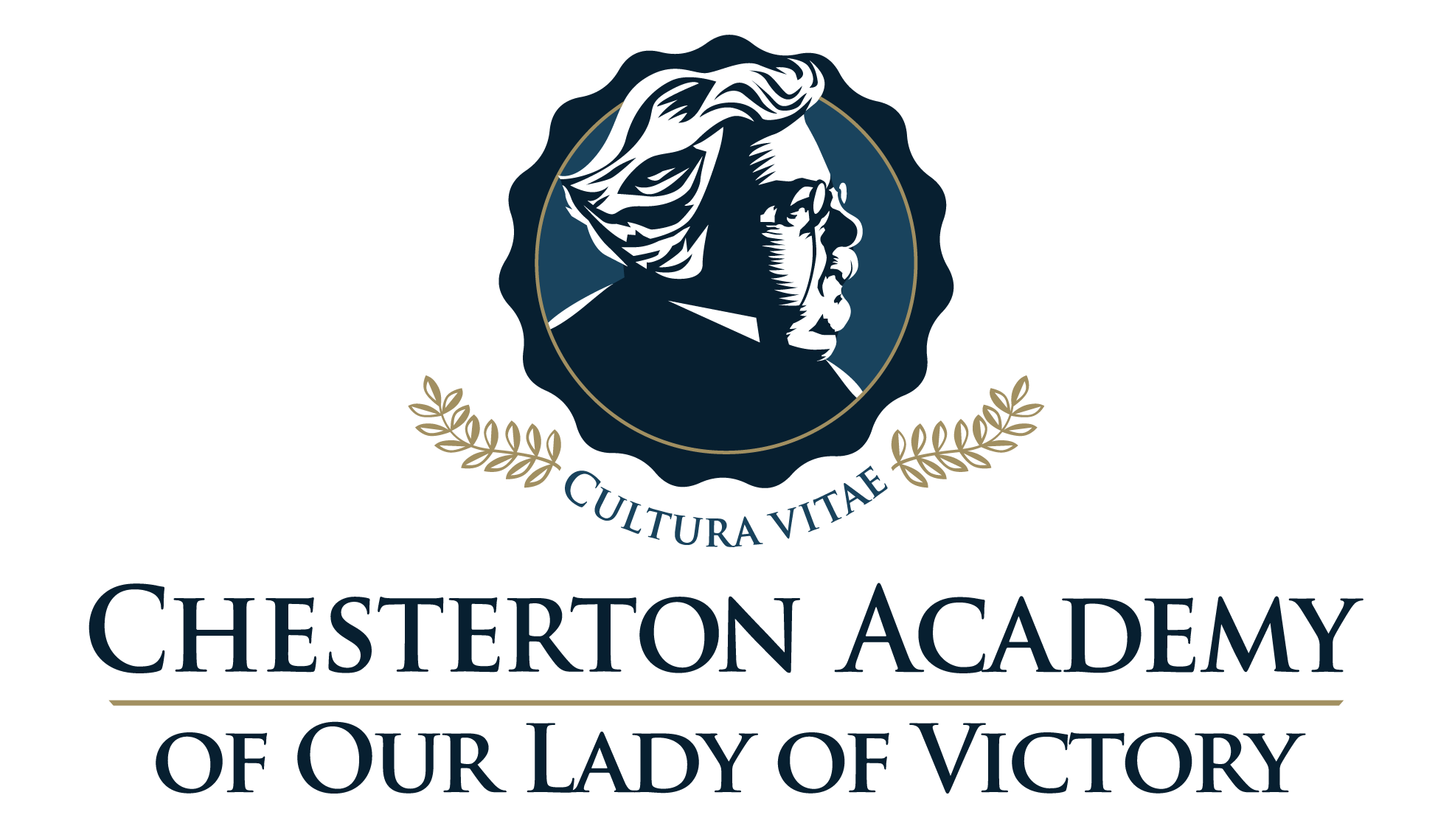Beginning with the End in Mind: Classical Catholic Education
Garrett Cichowitz
Lead Teacher, Our Lady of Victory
“The glory of God is man fully alive.”
- St. Irenaeus
“The glory of God is man fully alive.” In this famous quote from early Church Father Saint Irenaeus, man’s happiness and God’s glory are integral and cannot be separated. Our true end – in Greek, our telos – is God's desire for us, life to the full. All authentic Catholic education and formation aims for this common goal of raising saints after God’s heart.
But the discerning parent may ask: What does it mean to be “fully alive,” for me, my spouse, and my children? To this question, most people on the street would give a variety of responses based not on God's glory or the nature of reality, but the efficient fulfillment of individual human desires. Our society conditions us, especially our young people, to begin the discernment of life choices with this false premise: Happiness is a function of maximizing pleasure.
Any false premise will lead us to a false end, and the effects of this disordered logic on mainstream society are plain. It’s not surprising that we often feel at war within ourselves: Our lives are inundated with competing visions of the good life steeped in false promises of freedom through materialism and secular humanism. In his famous work on education, The Abolition of Man, C.S. Lewis lucidly articulates man's failure to accurately define, and therefore fulfill, his true end: for modern society, “the problem is how to subdue reality to the wishes of men.” However, “For the wise men of old the cardinal problem had been how to conform the soul to reality, and the solution had been knowledge, self-discipline, and virtue.” (1)
Conforming one’s soul to reality, to God’s will, may seem a daunting and potentially uncomfortable task. Young people especially may feel that discerning God’s will and placing themselves at his disposal could be isolating and at conflict with their deepest and often unspoken desires. Letting God have control is an unnerving prospect, particularly when so much else in a young person’s life seems uncertain.
But God is a good Father who gives us an abundance of grace and models for pursuing his will. The communion of saints offers thousands of unique examples and concrete practices for this pursuit in our own lives. Saint Teresa of Calcutta, for example, exhorts us: "We will be the happiest people in the world if we belong to God, if we place ourselves at his disposal, if we let him use us as he pleases." Likewise Saint Ignatius of Loyola, while discerning his life’s next steps, found God prompting his restless heart with models of the faith: “If St. Francis or St. Dominic could do this or that, then I can do the same.”
All of us, especially our young people, are strengthened by these inspiring examples. But no one saint’s story can serve as a perfect blueprint for what it means for you and me to be fully alive. You aren’t called to be Mother Teresa; you are called to be the saint God made you to be, in this period of salvation history. Like the saints at different stages of their own formation, each of us is a unique image of God, requiring daily discernment to navigate the specific choices Our Lord has placed in our lives.
Ours is a place and time in history that is both unique and not unique at all. Chesterton insightfully notes in The Everlasting Man, “Christendom has had a series of revolutions and in each one of them Christianity has died. Christianity has died many times and risen again; for it had a God who knew the way out of the grave.” Chesterton Academy of Our Lady of Victory is part of a resurrection, a new current, which is renewing Catholic education towards this goal of pursuing true happiness. This goal of life lived to the full, common for all Christians but unique to each Christian, requires diligent awareness of God’s will, understanding of our life’s meaning, and prayerful action – in essence, to swim with purpose against the current of modern culture. Through the grace of God, we seek to partner with families in forming joyfully Catholic young people through a classical Catholic education in order to send them on their way to being who God made them to be – fully alive in Christ.
(1) C. S. Lewis, The Abolition of Man Or Reflections on Education with Special Reference to the Teaching of English in the Upper Forms of Schools (New York: Simon and Schuster, A Touchstone Book, 1996)
Have a topic suggestion or other feedback for the editors? Contact us.
